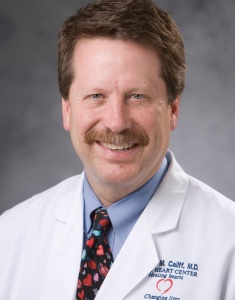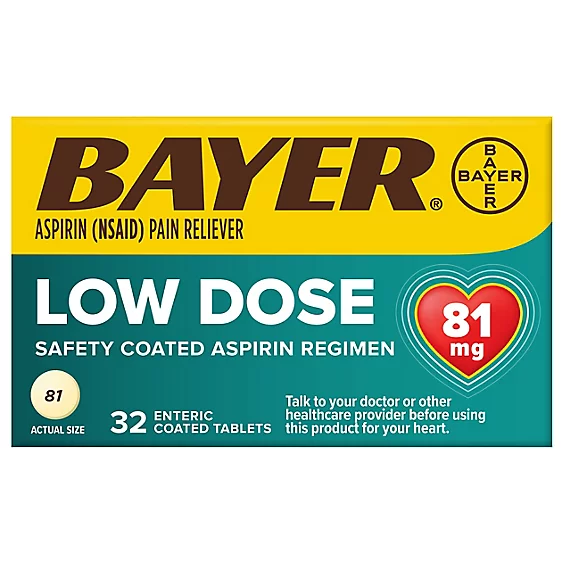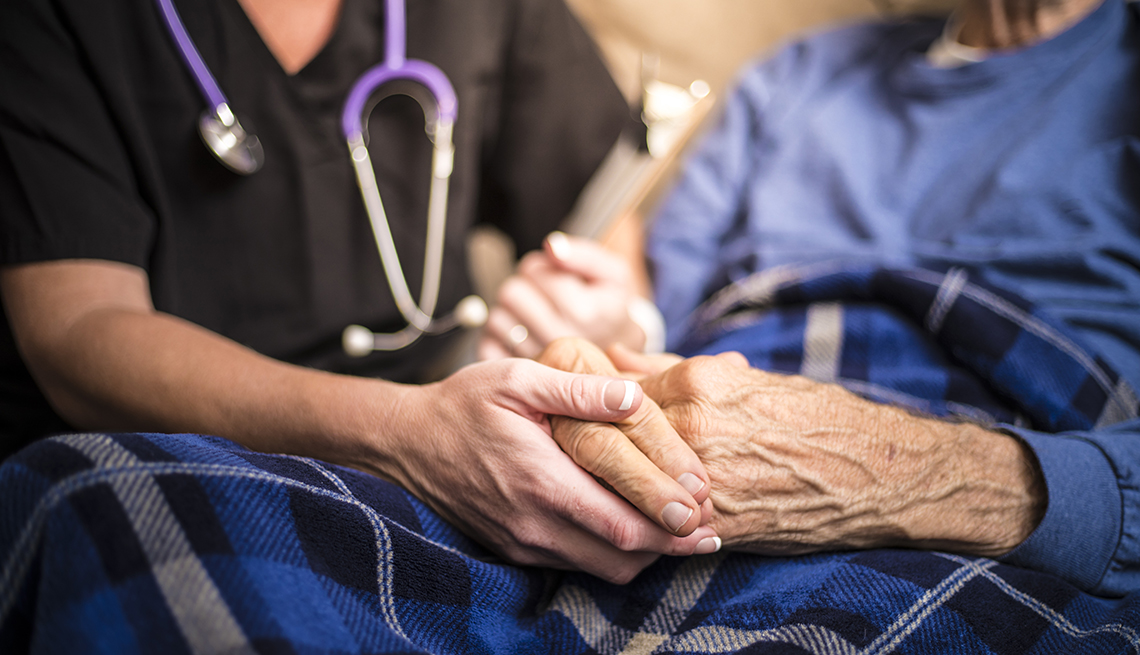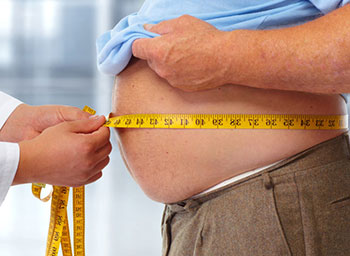AARP The Magazine had some amazing stories in its October/November 22 issue regarding innovations in health care. One new device on the market is a “smart stethoscope” which can detect even the slightest heart murmur. “Five to 10 percent of people we screen have some sort of valvular heart disease or atrial fibrillation,” Dr. Antoine Keller, a cardiothoracic surgeon and co-founder of HeartSense, told AARP The Magazine. “This stethoscope allows doctors to identify heart murmurs before they can be heard,” he said. Heart-valve disease affects 8.5% to 13.2% of adults over the age of 65 so early detection is critical.
Take Your Pills On A Set Schedule, Research Shows
The Wall Street Journal had an interesting article recently on the fact that since our physiology and biochemistry change dramatically through the course of each day, that medicines are more effective when taken on a set schedule. The term for this is chronopharmacology which states that medications and treatments should be taken on a set schedule when they are proven to be most effective. This is especially important in the case of heart attacks and strokes, two of the leading causes of death in the U.S., responsible for almost 900K deaths annually.
Reduce Weight And Cut Your Cardiovascular risk Factors
Obesity is a huge problem in our country, and can lead to heart attack, stroke , high blood pressure and many other negative health impacts. Lowering your cholesterol and limiting alcohol can also reduce your risk of a major cardiovascular event like a heart attack. The odds of getting cardiovascular disease in our 60’s are high. 77.5% of males and 75.4% of females between the ages of 60 to 79 have it, according to the American Heart Association (AHA). Common symptoms of a heart attack are chest pain or discomfort, shortness of breath, feeling faint or weak, and pain in your jaw, neck, back arms or shoulders. Other signs include unexplained fatigue, nausea, vomiting and light-headedness. “Even as little as a 5 to 10 percent decrease in your body weight can have a huge effect on your blood pressure and other risk factors,” Dr. Donald Lloyd-Jones, president of the AHA, told AARP Bulletin (August-September Issue, page 51).
More Voices Come Out Against Aspirin For Heart Attack And Stroke Prevention
In the old days, it was thought by many medical professionals that a daily dose of aspirin could ward off heart disease. In recent years, more and more studies have turned the tide away from the popularity of recommending a daily dose of aspirin. This year, the United States Preventing Services Task Force (USPSTF) came out strongly against those over 60 years old who have not had a heart attack or stroke, specifically citing the risks of internal bleeding which would outweigh any benefit. Adults who have a stent or have had a previous heart attack or stroke should not stop taking aspirin.
Monterey, CA Seniors Need To Stick To A Healthy Diet Or Risk Alzheimer’s, Dementia
We all know that processed foods aren’t good for you. More proof of this come from the Alzheimer’s Association, which did a presentation at the Alzheimer’s Association International Conference in San Diego to show the audience proof from various studies which showed that food like instant noodles, sugary drinks and frozen meals all play a role in cognitive decline. “It’s no secret that physical and mental cognitive health are intimately involved with each other, so it’s no surprise that this latest research suggests brain impairment too,” Rafael Perez-Escamilla, a professor of public health at Yale University, told the audience. “Just 100 calories of processed foods can affect your physical health. So, that’s two cookies,” he continued. Other research has linked ultra-processed food consumption to health problems such as obesity, cardiovascular disease, diabetes and cancers. Try the Mediterranean Diet, it’s great for your health and delicious. Regular readers of my blog know that both my father and grandmother had this terrible disease when they passed away. If you need information or just someone to talk to, there are some wonderful people at the Monterey branch of the Alzheimer’s Association in Ryan Ranch. They also have a 24-hour hotline at 1-800-272-3900.
Sleep Extremely Important For Staying In Good Health
As we get older, we often sleep less than we did when we were younger. However, that may not be a good thing. The American Heart Association recommends that adults get seven to nine hours of sleep per night. Just last month they added sleep to its list of factors critical to heart health, a list that includes seven others such as diet, physical activity and blood pressure. Their report jibes with a widening scientific consensus on the role sleep plays in helping prevent heart disease. “The more we learn, the more we know how instrumental sleep is to heart health,” Marie-Pierre St-Onge, associate professor of nutritional medicine and director of the Sleep Center of Excellence at Columbia University Irving Medical Center, told The Wall Street Journal.
Monterey, CA Obesity A Big Problem In America
Obesity is a huge problem for Americans, and some people are just accepting the condition rather than fighting it. “We consider fat a part of human body diversity,” Tigress Osborn, chair of the nonprofit National Association to Advance Fat Acceptance, told USA Today.
In 2005, the U.S. Surgeon General Richard Carmona declared obesity a bigger threat to America than terrorists, but our government has done very little to regulate food marketing, reduce demand by increasing taxes or adding the kind of nutrition labels to decrease junk food consumption. Currently, 42% of Americans fit the medical definition of being obese (having a body mass index of 30 or greater). Many types of cancer are linked to obesity. So is heart, liver and kidney disease. And people with obesity run an 80% higher risk of developing diabetes. Many people swear by the Mediterranean Diet to lose weight. It consists of delicious foods like lamb, chicken, beef, olive oil, fresh fruit, vegetables and nuts. Montage or Community Hospital of the Monterey Peninsula (CHOMP) has some great information on their website about weight loss.
Obesity Is A Growing Problem In This Country
Obesity can lead to a number of health problems including diabetes, heart disease and strokes. One issue that can easily be tackled is to stop drinking sugary beverages. A 20-ounce bottle of cola contains 65 grams of sugar—five times as much as a typical glazed donut. Even things that you think are healthy might be a bad choice. Store-bought orange juice has as much sugar as soda! Try switching to sparkling water with lemon or making your own iced tea.
Doctors Not Picking Up On Symptoms Of Heart Disease In Women
There was a disturbing story in The New York Times which reported that new research found that women may not realize that they are having symptoms of heart problems, and that their doctors aren’t picking up on it either. Studies have shown that women are more likely than men to dismiss the warning signs of a heart attack, sometimes waiting hours or even longer before calling 911 or going to the hospital. Now researchers are finding that this may be due to the fact that women have less serious symptoms than men when having a heart attack, and doctors have also been downplaying their symptoms and delaying treatment. Women sometimes have no chest pain but rather have more subtle symptoms like shortness of breath, cold sweats, malaise, fatigue and jaw and back pain. And when they do get to the hospital, a study which was published in the Journal of the American Heart Association which studied data from millions of emergency room visits before the pandemic, found women complaining of chest pain had to wat an average of 11 minutes more than men to see a doctor or nurse. The study also found that women were less likely to be admitted to the hospital, had less thorough evaluations, and were less likely to be administered tests like an electrocardiogram, or EKG, which can detect heart problems. One study found that women complaining of symptoms consistent with heart disease, including chest pain, were twice as likely to be diagnosed with a mental illness than men who complained of identical symptoms.
Sneaky Sigs You May Have Heart Disease
AARP The Magazine (February/March 2022, page 22) had an interesting article entitled “10 Sneaky Signs You May Have Heart Disease” and many of them are completely unexpected. Things like bad breath and hip pain can actually be signs of heart disease. Check out the Top 10 signs from AARP:
- You struggle to breathe when lying flat : This can indicate fluid in the lungs, which is associated with heart failure;
- You have leg or hip pain while walking (or both). This could signal circulation problems in the legs, a potential sign of peripheral artery disease;
- You can’t rise to the occasion : This could signal a blood-flow problem, potentially caused by heart disease;
- Or get your juices flowing : Blood-flow issues aren’t just for men. A study found that 84% of men and 87% of women with heart failure reported some degree of sexual disfunction;
- You’re fatigued for no reason : This could be a sign of an obstructed coronary artery;
- You get up to pee in the middle of the night : A weak heart pumps less blood to the kidneys, which can cause fluid buildup and swollen ankles and leg. At bedtime, gravity drains fluid back to the heart, and the kidneys have more fluid to filter;
- Your breath could kill houseplants : Bad breath is caused by bacteria which can enter your bloodstream through bleeding or diseased gums, which is linked to inflammation, clogged arteries and stroke;
- You spot fatty growths : Known as xanthomas, these lesions feel like calcium deposits in the tendons, and they can indicate sky-high cholesterol;
- Your ankles are swollen : When the heart isn’t pumping blood efficiently, fluid can swell both legs; and
- You’re feeling nauseous : Unexplained queasiness could be a sign of heart failure.
Check with your doctor if you have any of these issues, particularly if it has been going on for some time.










